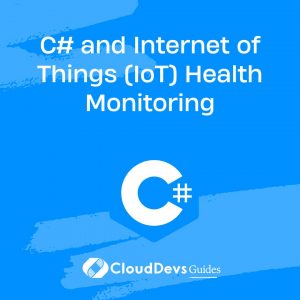How to handle exceptions in C#?
Handling exceptions in C# is essential for robust and reliable software development. Exceptions are runtime errors that can occur during the execution of a program, and handling them properly allows you to gracefully recover from errors and maintain the stability of your application. Here are the key steps for handling exceptions in C#:
- Try-Catch Blocks: To handle exceptions, wrap the potentially problematic code within a `try` block. The `try` block contains the code that might throw an exception.
- Catch Blocks: Immediately following the `try` block, you can include one or more `catch` blocks. Each `catch` block is responsible for catching a specific type of exception. If an exception occurs in the `try` block, the runtime looks for the appropriate `catch` block to handle it based on the exception’s type.
- Catch Exception Types: You can catch specific exception types or use a generic `catch` block to catch all exceptions. It’s good practice to catch only the exceptions you expect and can handle, allowing unexpected exceptions to propagate up the call stack for global error handling.
- Finally Block: Optionally, you can include a `finally` block after the `catch` blocks. The code in the `finally` block is executed regardless of whether an exception was thrown, making it useful for cleanup tasks.
Here’s a code example demonstrating the use of try-catch blocks:
```csharp
try
{
// Code that might throw an exception
int result = Divide(10, 0);
}
catch (DivideByZeroException ex)
{
// Handle the specific exception
Console.WriteLine("Division by zero error: " + ex.Message);
}
catch (Exception ex)
{
// Catch other exceptions
Console.WriteLine("An error occurred: " + ex.Message);
}
finally
{
// Cleanup or finalization code (executed regardless of exceptions)
}
// Continue with the program
```
In this example, we use try-catch blocks to handle exceptions when dividing by zero. The first `catch` block handles the specific `DivideByZeroException`, while the second `catch` block catches other exceptions. The `finally` block is useful for any cleanup operations that need to be performed, such as closing files or releasing resources.
Proper exception handling is crucial for robust and reliable software, as it helps prevent unexpected crashes and allows for graceful error recovery. It also aids in debugging and provides useful information about the nature of errors that may occur during program execution.








